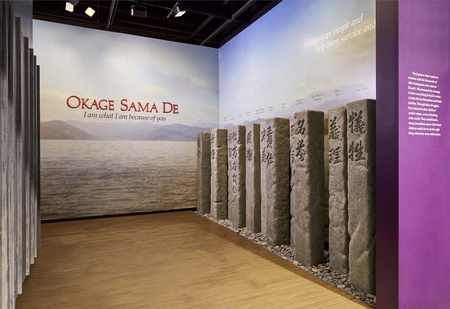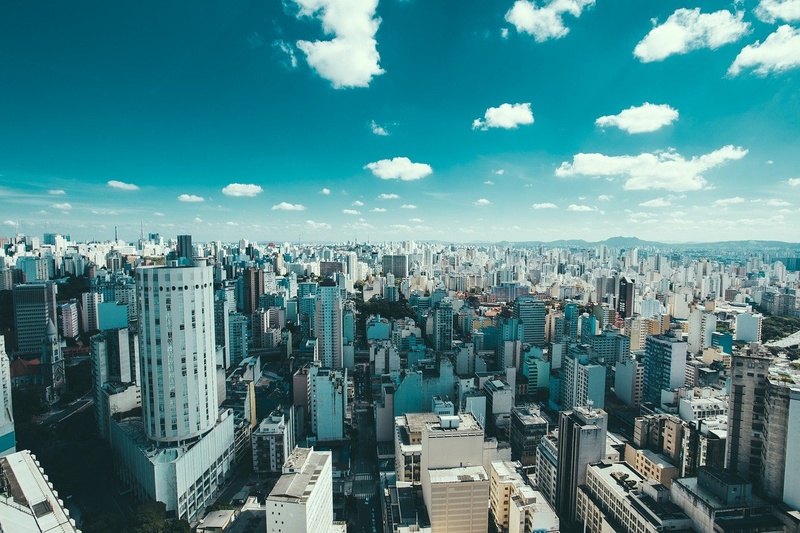Strong feeling of responsibility to transmit the Nikkei legacy for the future
Covid-19 has been spreading over the world and the measures that the government of each country has been taking are diverse and people are reacting differently to them.
In Japan, the measures that the government are taking are much less restrictive than those in Europe and US but the number of infected persons and deaths are quite lower, which provoked comments on the reason why it is.
The Deputy Prime Minister Aso mentioned “difference in people’s degree” and Prof. Yamanaka, a Nobel prize winner tried to find out the cause of the difference naming it “Factor X.”
Though many Japanese complain about double-dealing attitude of the government in prioritizing containment of the pandemic, or, keeping economic interests, almost nobody complains about wearing a face mask. In Europe and US many people are against wearing a face mask saying that it violates personal freedom and dignity, which we do not understand. In some countries there are debates if religious meetings can be prohibited to avoid density of people, or not. Vaccination will start soon and it is expected that quite a few may refuse to get vaccinated (in Japan, too). There can be an argument whether the government could force vaccine on the people.
I think that with the appearance of Covid-19 and its countermeasures, the cultural difference we have noticed in foreign trips and business would become more evident.
In the process of the growing of a person, self-consciousness is established by observing the differences of one’s values from those of surrounding people. In a group of people, to be conscious of the difference of values that members share from those of not-belonging will strengthen the identity of the group.
At this moment, Nikkeis living in Brazil are realizing this process. The following is the presentation of their efforts as I see them.
“We have the responsibility to transmit the Nikkei legacy for a long time”
On June 6, 2018, the 59th Convention of Nikkeis & Japanese Abroad was held in Honolulu, Hawaii, organized by The Association of Nikkei & Japanese Abroad, a public interest foundation in Japan. Normally, a Convention of Nikkei & Japanese Abroad takes place in autumn in Tokyo but the 59th was held in Honolulu, in commemoration of the 150 years anniversary of the first Japanese group migration to work in sugar cane farms.
The theme of the convention was “Legacy in Nikkei Community”. A total of 298 persons from 15 countries participated, including 15 members of “Project Kakehashi (bridge)” from Brazil.
A Japanese entrepreneur who has special emotional attachment to Brazil bore the expenses to participate in Hawaii and to go on a study tour in Japan for these 15, of ages 20 to 40 years old, who were selected with the cooperation of São Paulo Shimbun (a newspaper company in Japanese language) based on their contribution in Nikkei communities all over Brazil.
The leader of this group was Ricardo Nishimura, a dentist and Sansei of 41 years old. In the material he contributed to ‘Our path-Sixty Conventions of Nikkei & Japanese Abroad’ (published in 2020) he wrote as follows:
“In the Convention, listening to the panel discussions on the legacies of Nikkeis and Nikkei communities, I thought about our ancestors who worked hard in a foreign place, overcoming various obstacles and contributing to the growth of the country that accepted them. We, in Brazil at this moment, are picking the fruits yielded from the efforts made by our ancestors who planted the pride of being Nikkei in our heart. I felt it is our full responsibility to pass down the legacy of Nikkeis for a long time in future.”
The values of Hawaiian Nikkeis are engraved on the stone pillars. Looking at them I got an idea that the pride of being Nikkei and respect of Japanese culture and maintaining of it in Brazil would be enhanced if we research the values of Nikkeis in Brazil. I brought back this idea to Brazil and started ‘Projeto Geração (project generation)’ as an executive arm of ‘Project Kakehashi of Japan/ Brazil’ in The Brazilian Society of Japanese Culture and Social Services (Bunkyo).”
“The objective of this project is to reconfirm principal values of Nikkei Brazilians which constitute a part of personality of each Nikkei, applying the technique of knowledge management. The values of Nikkei Brazilians should be a mixture of Japanese and Brazilian cultures which will define our way of relating with others individually and as a group. It will be wonderful if we go further learning how to contribute to Brazilian society, maintaining, at the same time, our ties with the country of origin of our ancestors.”
(Extracted from Ricardo Nishimura’s article in “Our path-Sixty Conventions of Nikkei & Japanese Abroad” and bolded by Morimoto)
These stone pillars Mr. Nishimura mentioned are located in the Japanese Cultural Center of Hawai’i.

The Center was established in 1989 in Honolulu under the leadership of Japanese Chamber of Commerce and Industry, as a tribute to the 100 years anniversary of government sponsored Japanese immigrants to Hawaii. At the entrance to the permanent exposition building, a dozen pillars are lined: each one is engraved with an important word for the first generation, such as, dedication to the ancestors, benefactor, perseverance, efforts, resignation, gratitude, loyalty, responsibility, shame, pride, honor, obligation, sacrifice, etc.
The Brazilian group visited the Japanese Cultural Center after the Convention and was impressed by these stone pillars, acquiring an idea that they will research the values held by Nikkei Brazilians to confirm their pride of being Nikkeis.
The immigrants who entered Brazil are called “Issei” (first generation), their children being “Nisei” and the grandchildren, “Sansei”, and now “Rokusei” or sixth generation are born. Marriage with non-Nikkeis are observed frequently (there is an estimation that more than 60% in the fourth generation) and though there is almost no clear definition of Nikkei, they say that there are approximately one million nine hundred thousand Nikkeis, or one percent of the total Brazilian population.
In the beginning, Japanese immigrated to Brazil in groups and settled in farms where many community activities (Japanese language schools for children, mutual social aids, bon-odori etc.) took place. But later, relocation to cities was increasing and now it is estimated that 90% of Nikkeis are living in big cities like São Paulo. The education continuance rate is very high among Nikkeis (more than 10% of the students of the prestigious University of São Paulo are Nikkeis), and many of them become medical doctors, lawyers, employees of prestigious positions in government and private corporations, thus, building a solid position in Brazilian society. At the same time, community activities principally promoted by Nikkeis are declining, as the youth move to cities to study and/or to work and many have left for dekassegui (going to Japan to work). The number of community organizations managed by non-Nikkei is increasing, too.
It is understandable that facing the above Nikkei situation, hard-working and upward-oriented Nikkeis like Nishimura are proud of what they have achieved in the society, recalling and distinguishing the way how their ancestors made their living among Brazilians with diversified background, and want to pass it on to the future Nikkeis.
Eight Values Selected
Soon after returning to Brazil, Mr. Nishimura and several members started the research on Nikkei values. They named their research “Projeto Geração” (project generations) and asked Mr. André Saito, President of Brazilian Society of Knowledge Management for academic orientation. Mr. Saito is a graduate of University of Campinas, with master’s degree from Getulio Vargas Foundation and got a Ph.D from Japan Advanced Institute of Science and Technology.
The project team developed a workshop method applying the knowledge management technique. Workshops were performed in eight regions where many Nikkeis live, participated by more than 300 Nikkeis and they selected these 8 values without any order of importance.
- [Responsibility] emphasis on fulfilling obligation
- [Learning] emphasis on education of children and on upper-orientation
- [Integrity] same as honesty and faithful
- [Collective/collaborative]
- [Perseverance]
- [Kindness] to others
- [Gratitude] in relation with others
- [Respect] to the ancestors and surrounding people
In addition to the above eight, Diligence, Oya koukou (dedication to parents), Mottainai (to not be wasteful), and Shikata ga nai (it can’t help it) were nominated but the above eight were chosen because they contributed directly for Nikkei to build a solid position in Brazilian society.
In Japan, being collective, or, doing it all together, so as only to keep harmony in a group, could have negative aspect such as suppressing minor opinion, too much encouraging the empathetic attitude and complying with the majority without belief. I told this to one of the senior members of the project. As a response, he said, in Brazil to respect diversity and to put importance on individual are the most distinguished virtue of the people, so, within this limit, we want collaborate in order to make 1 plus 1 more than 2.
I got reminded that these eight values are of the descendants in Brazil, not of Japanese. I took a liberty to write this article to tell Japanese people that Nikkei Brazilians are proud of Japanese values in the context of their pride in Brazilian society.
© 2021 Masayoshi Morimoto



